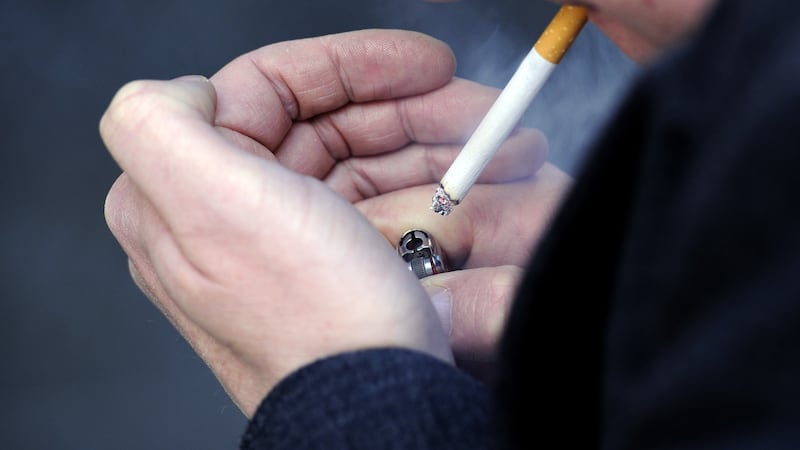According to some commentators we should feel sorry for Sinn Féin. On what passes for “analysis” it seems SF have not contributed but are ‘victims’ of this political shambles.
Apart of course from their backroom deals like the co-ordinated 2016 election manifestos or divvying out taxpayers’ money to each other, light touch audits of course; less than truthful joint statement in November 2016 saying how well they were working together, as confirmed later during the 2017 assembly election; efforts to ‘play both ends against the middle’ to undermine their respective political rivals. Perversely, cute ‘strokes’ denying their rivals political success, also denied us all effective government.
SF didn’t and do not have to pursue these cynical and ultimately self-defeating deals. It is clear that we need a middle ground. If for example, there is to be any settlement with loyalist bonfires, it will not be Sinn Féin, for obvious reasons, that will take the lead role, if indeed any.
If SF haven’t noticed, the voters have, and increasingly they will respond, at the ballot box.
The key question is whether SF really want us to have good governance here? If they do then say so, shut up about unity, (it will happen organically, especially if SF stops banging on), move away from the DUP and reach out to everyone else.
Instead of relying on uncritical hacks to write ‘political sick notes’ for them they could try something positive? They could promote reform of the GFA, remove the Petition of Concern and work with the other parties. A block of 62 MLAs, developing policy, backed by logical argument and debate, would be hard for 28 DUP MLAs to resist, although I am sure they would try.
If SF have policies and ideas worth pursuing, they could sell them, in public, to the other parties and the electorate. A constructive cross-party approach is not only doable, but in a post-Brexit or worse a no-deal exit world, it will be vital for us all.
This month’s vote in Westminster is likely to be only the start of what will be a sad political sunset, if not eclipse for the DUP. Apart from pointing the finger and blaming the DUP what else has SF got, and are they prepared to do something to help us all cope with it?
FRANK HENNESSEY
Belfast BT9
Dash to introduce GMO products a bad dream come true
In his first speech as prime minister an enthusiastic Boris Johnson told us of the myriad opportunities awaiting the UK post-Brexit. He specifically mentioned the lifting of the EU ban on the use of Genetically Modified Organisms for the expansion of research into agricultural methods. This is like a bad dream coming true. The dash to introduce GMO products and research into bio-science is motivated by corporate greed and ignores evidence of adverse effects on human health. In the 2016 referendum my principal concern was how we could protect Irish health by blocking the introduction of GMOs. The United States has been pushing genetic research in agriculture for decades. There GMO ingredients are now found in most processed foods and the country suffers from the highest levels of chronic disease in the Western World. While the EU has for years permitted the use of GMO feed for farm animals, it has maintained a ban on human consumption.
While Northern Ireland remains part of the UK we face the threat of having GMO crops planted here perhaps as early as next year. Thereafter it will not matter whether a hard or soft border is installed in Ireland. Pollen from the GMO crops would quickly contaminate the entire country.
In future years Ireland may find that its arable produce is banned from export and that the health of both its livestock and its people suffers. This is, in effect, an act of war. Perhaps the UK prime minister would assure the people of Northern Ireland that a moratorium on GMO crops will be maintained here for at least 15 years so that we can review health trends across England following their introduction.
PAUL CURRAN
Castlewellan, Co Down
Soft on the backstop
Removing the backstop (or cancelling the insurance) solves nothing, because the problem remains – the Northern Ireland border.
So the first item on the agenda when the trade deal talks start will be the Northern Ireland border.
The essence of a trade deal is two parties with markets attractive to each other.
Of necessity each market must have well defined and controlled borders. It is not possible to ‘sell’ a market with open borders.
Northern Ireland’s border is 300 miles long with 200 crossings and is ill-defined and not really controllable.
This is a British Empire legacy problem, created by a British government c. 100 years ago.
But the real problem seems to be sentiment on the part of the DUP i.e. how British they will feel post Brexit.
This is a problem the British alone can solve.
The EU offered a pragmatic solution – special status for Northern Ireland, which was rejected, accompanied by much patriotic rhetoric.
But history is history and reality is reality.
And Boris has boxed himself in to October 31.
He could take GB out of the backstop and swap the now NI backstop for the special status earlier offered by the EU and get this past his MPs with the help of Labour.
PAUL ROCHE
Dublin
Something to celebrate
I agree with Jamie Bryson. The loyalists won the battle of the Avoniel bonfire – the advocates of “No surrender” and “Not an inch”, have something to celebrate. The forces of law and order backed down in the face of the threat of mob violence, and the continuity RUC can hardly be said to have distinguished themselves.
What does that portend? Will it encourage the taigs and fenians to be law-abiding, or will it still further dilute their faith in constitutionalism?
SHAEMUS HARAN
Adare Village, Limerick
Questions and answers
Dr Niall Meehan (July 11) asked “Why do southern Irish Protestants live longer than Catholic counterparts?”
A similar question is: “Why do married men live longer than single men?”
The same answer fits both – “They don’t. It only seems longer.”
JACK CAMPBELL
Glengormley, Co Antrim
Where will it end?
It seems we have another typical Northern Ireland situation – masked bonfire builders threatening masked bonfire dismantlers. Where will it all end?
JOSEPH KENNEDY
Dunmurry, Co Antrim







